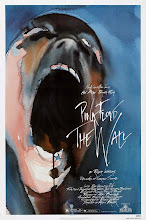
.
.
.
Year:1976
.
.
1976’s Rastaman Vibration is often cited as the album that finally broke Bob Marley into the American pop market. While this may be true from a sales standpoint, musically Rastaman Vibration is in fact something of a welcome stylistic digression for Marley, who paused to record this album of rough-hewn reggae in the midst of his metamorphosis from Rasta proselytizer to pop star. Since signing with Island Records in 1973 Marley had been inching away from the deep, dreader-than-dread sound of his early Lee Perry helmed recordings, crafting a brighter pop sound with more universal appeal. Rastaman Vibration, however, found Marley collaborating with veteran Jamaican producer Joe Gibbs, whose trademark heavyweight sound lends the album a welcome dose of bass-laden foreboding. On the thundering “War” Marley quotes Haile Sellassie over a stuttering, strangulated rhythm that drips with the threat of imminent violence, while the creeping drum machines of “Johnny Was” lend a sense of tragic inevitability to Marley’s tale of an inner city shooting. Rastaman Vibration is one of Marley’s most accomplished albums, a welcome return to the rough and ready sound upon which he had built his reputation.
1.Positive Vibration music or lyric
2.Roots, Rock, Reggae music or lyric
3.Johnny Was music or lyric
4.Cry to Me music or lyric
5.Want More music or lyric
6.Crazy Baldhead music or lyric
7.Who the Cap Fit (Full Version) music or lyric
8.Night Shift music or lyric
9.War music or lyric
10.Rat Race (Songs of Freedom Version) music or lyric
11.Jah Live music or lyric

